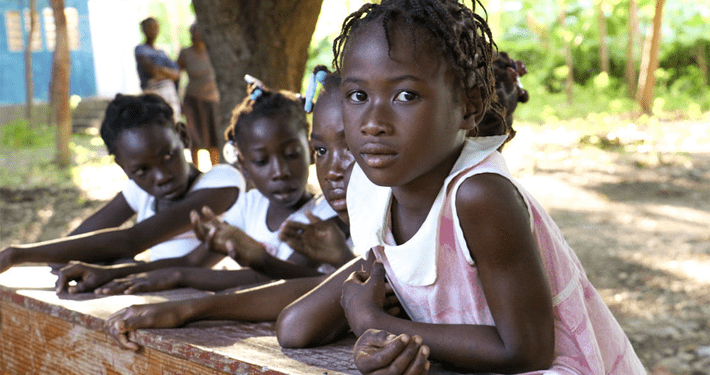U.S.-based Haitian lawyer Yveline Dalmacy has called on world leaders to support girls in Haiti, affected mainly by the ongoing crisis.
Haiti has been plunged into a serious humanitarian, political and security crisis following the assassination of President Jovenel Moïse in 2021 and the subsequent strengthening of criminal gangs.
Scores of people have been killed, and some 17,000 others have been left homeless amid the violence.
Ms Dalmacy spoke during a question-and-answer session at an event in New York on the sidelines of the ongoing 68th session of the United Nations Commission on the Status of Women (CSW68).
She spoke after the panel discussion session on ‘Women Hold up the Sky’. She asked what would happen to girls in Haiti whose government had failed them.
The lawyer, however, called on the participants and the world leaders to support the girls.
In a related development, the UN humanitarian coordinator said the situation in the gang-ravaged capital of Haiti has gone from worrying to “extremely alarming” as conditions in Port-au-Prince continue to worsen amid growing hunger and serious shortages in hospitals to treat gunshot victims.
“It’s important we don’t let the violence spill over from the capital into the country,” Ulrika Richardson said while briefing journalists at UN Headquarters via videolink from Haiti on Thursday.
She said orchestrated gang attacks on prisons, ports, hospitals and the palace have unfolded over the past weeks, but in the past few days, these heavily armed groups have been advancing into new areas of the capital.
“There is human suffering at an alarming scale,” she said, describing daily tension, sounds of gunshots and fear rising throughout the capital.
Abhorrent human rights violations are ongoing, with more than 2,500 people killed, kidnapped or injured, she said, stressing that sexual violence is rampant, with the use of torture and “collective rape” against women.
A total of 5.5 million Haitians need assistance, more than three million of them children.
Food security remains a grave concern, with malnutrition reported in a growing number of youngsters. In addition, 45 per cent of Haitians do not have access to clean water.
Haiti is “one step away from famine,” she warned, calling for urgent support for the humanitarian response plan, which requires $674 million but is only six per cent funded.
The World Health Organisation (WHO) reported that less than half of health facilities in Port-au-Prince are functioning at their normal capacity, and there is a pressing need for safe blood products, anaesthetics and other essential medicines.
According to the World Food Programme, 1.4 million people are facing emergency levels of hunger and need assistance to survive.
Elaborating on the health conditions, the UN health agency said the cholera outbreak, which has been declining since the end of last year, could flare up again should the crisis continue.
Cholera response activities and data surveillance have already been affected by the recent violence, and the situation could worsen significantly in the coming weeks if fuel becomes scarce and access to essential medical supplies is not improved soon, according to WHO.
The WHO chief called for swift support to help those trapped in deteriorating situations.
He said WHO and the Pan American Health Organisation (PAHO) are supporting the Ministry of Health and other partners with supplies and logistics, including water, sanitation, hygiene, and disease surveillance in centres for displaced persons.
UN Secretary-General Antonio Guterres called for all efforts to maintain the momentum and work towards implementing transitional arrangements agreed upon last week following the prime minister’s resignation, UN deputy spokesperson Farhan Haq said on Thursday.
The UN chief welcomed reports that Haitian stakeholders have all nominated candidates to the Transitional Presidential Council, adding that the UN, through its office in Haiti, BINUH, will continue to support the country in its efforts to restore democratic institutions.
“The swift deployment of the multinational mission remains critical to ensure that the political and security tracks can advance in parallel as only complementary efforts can be successful,” he said.
(NAN)






